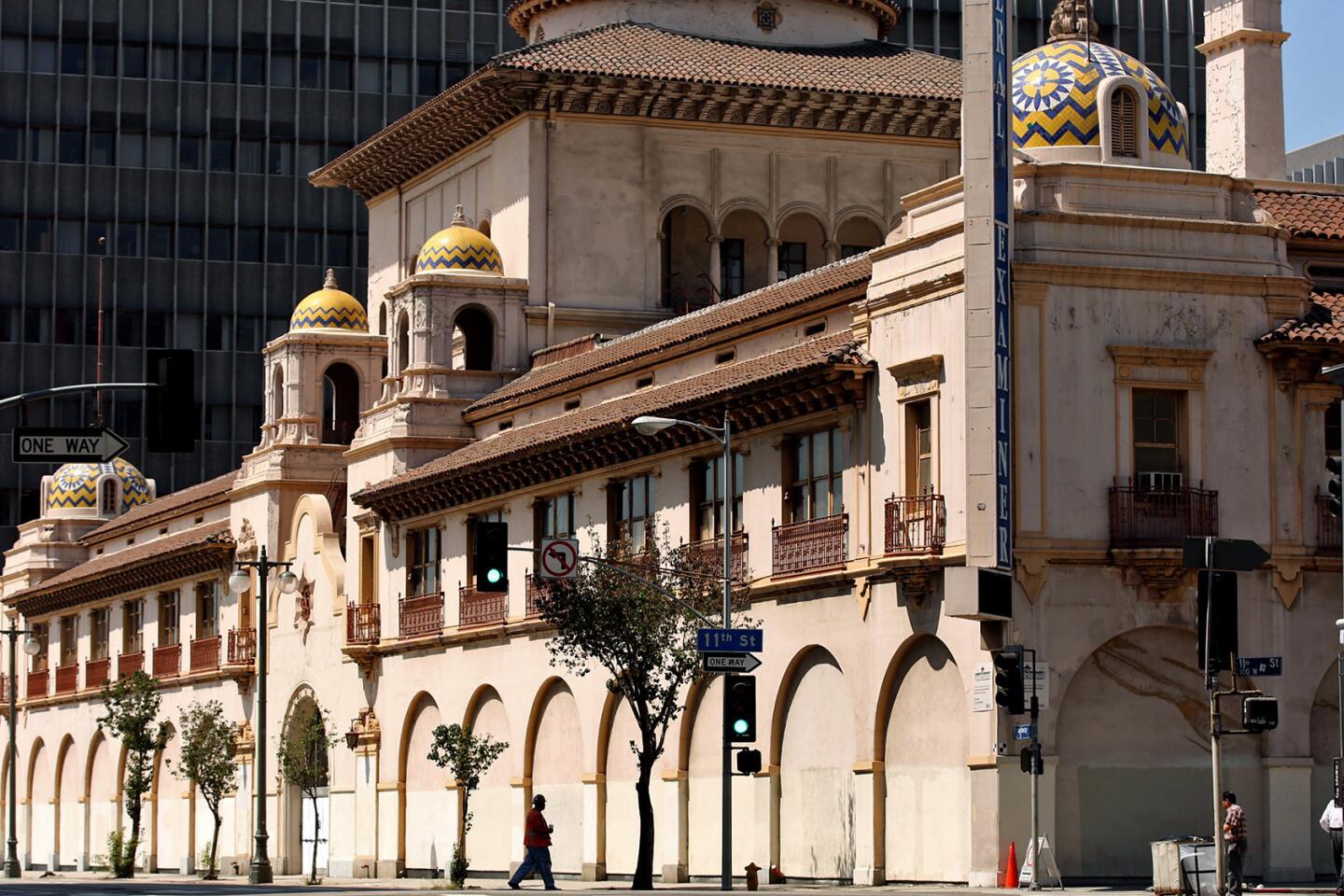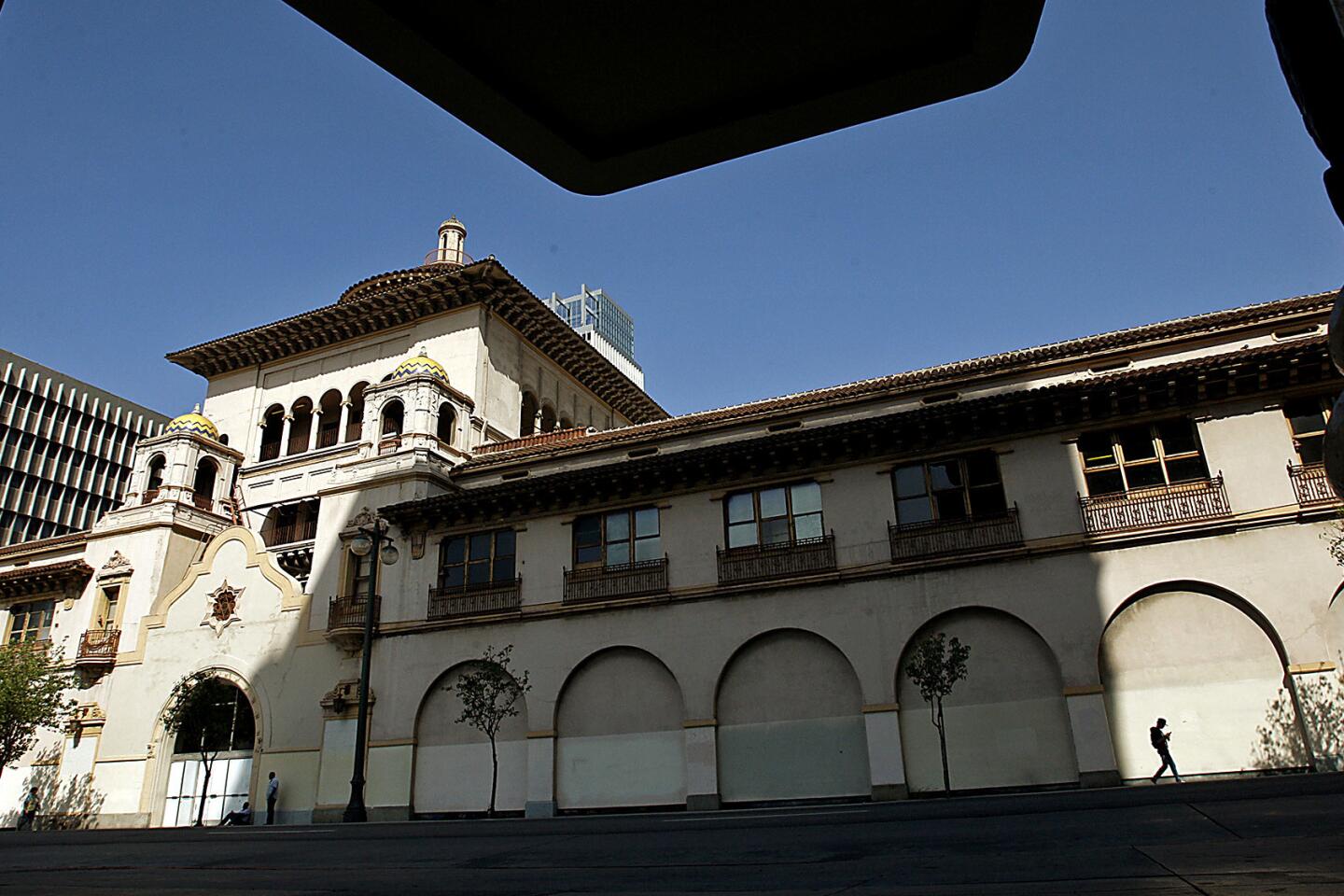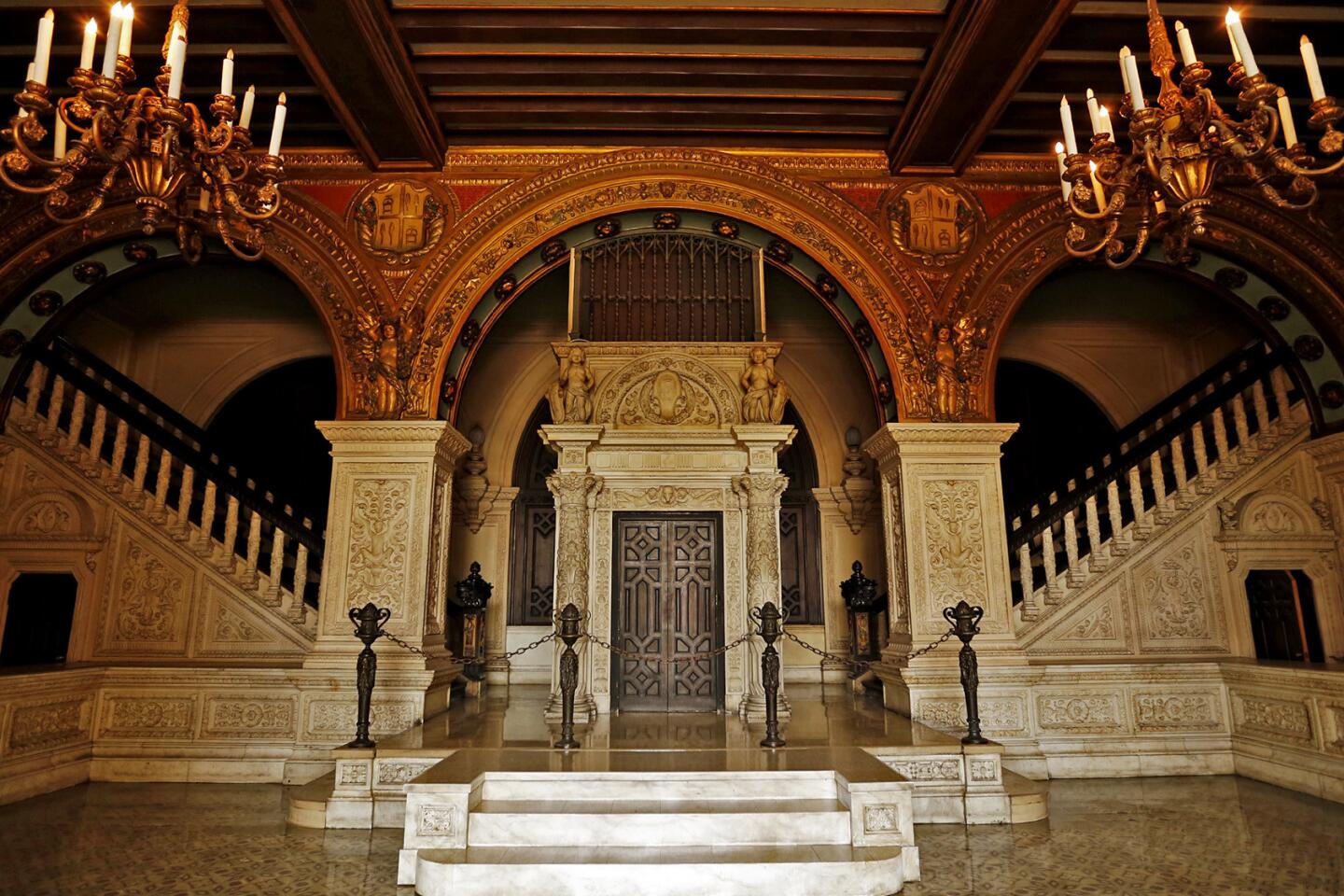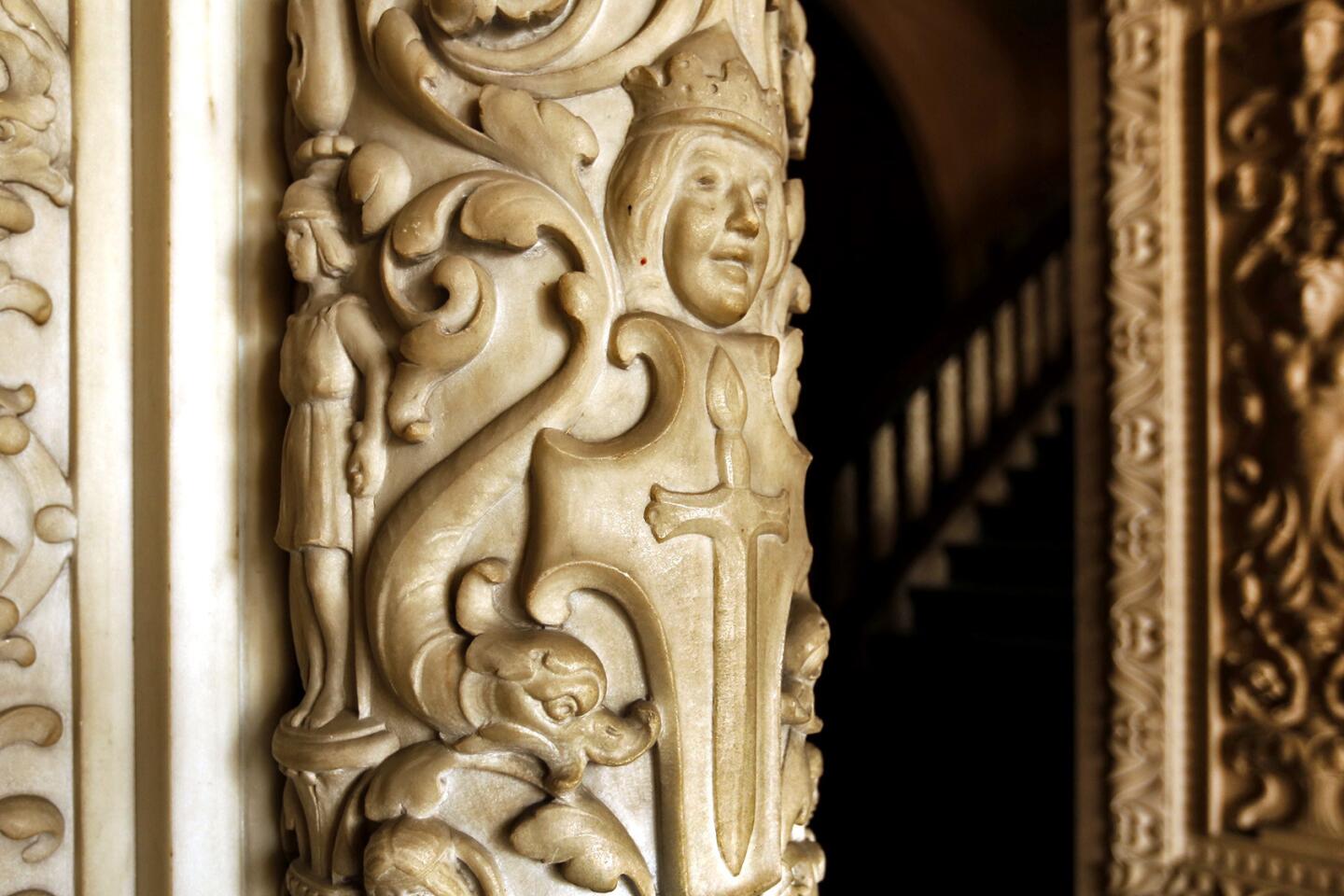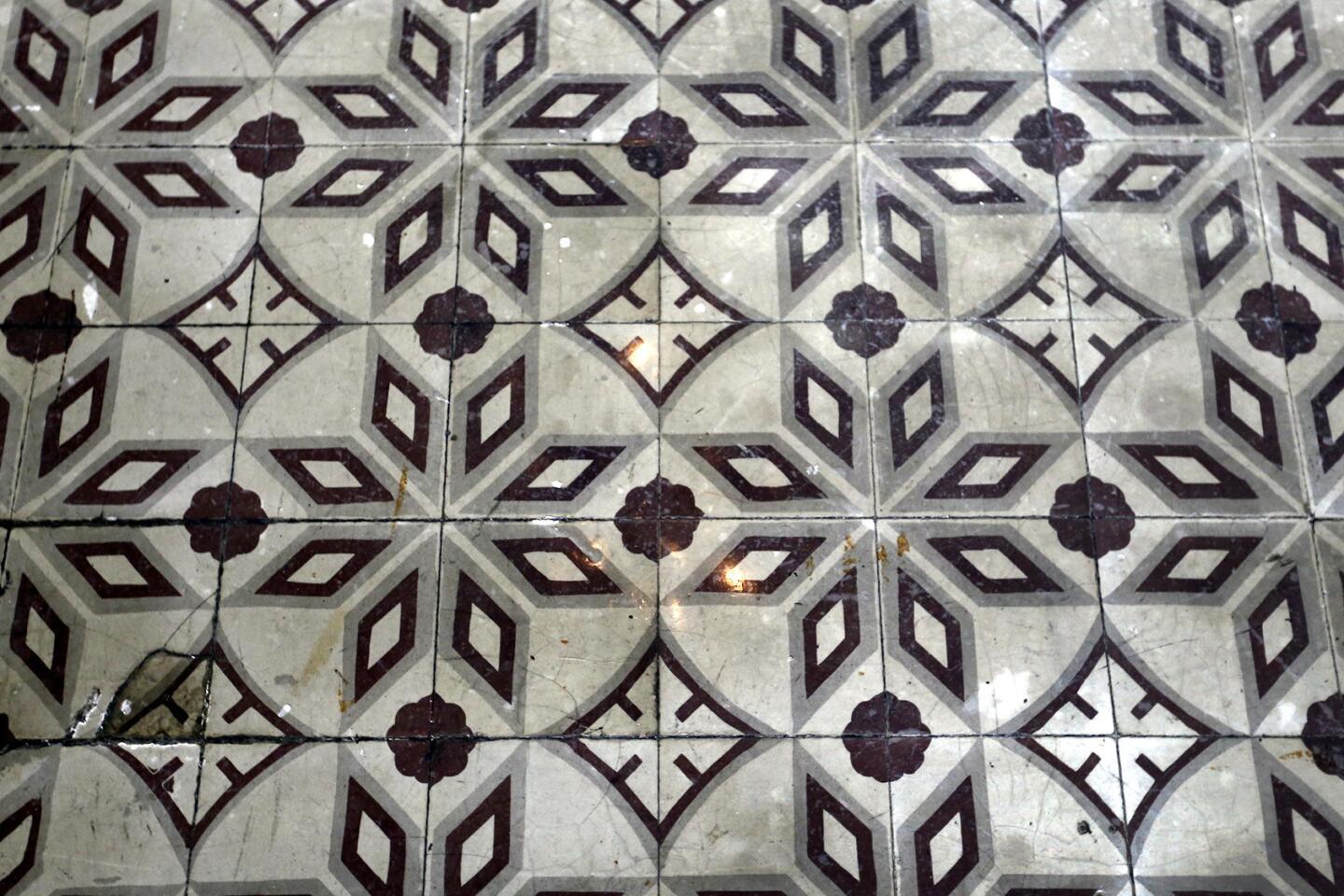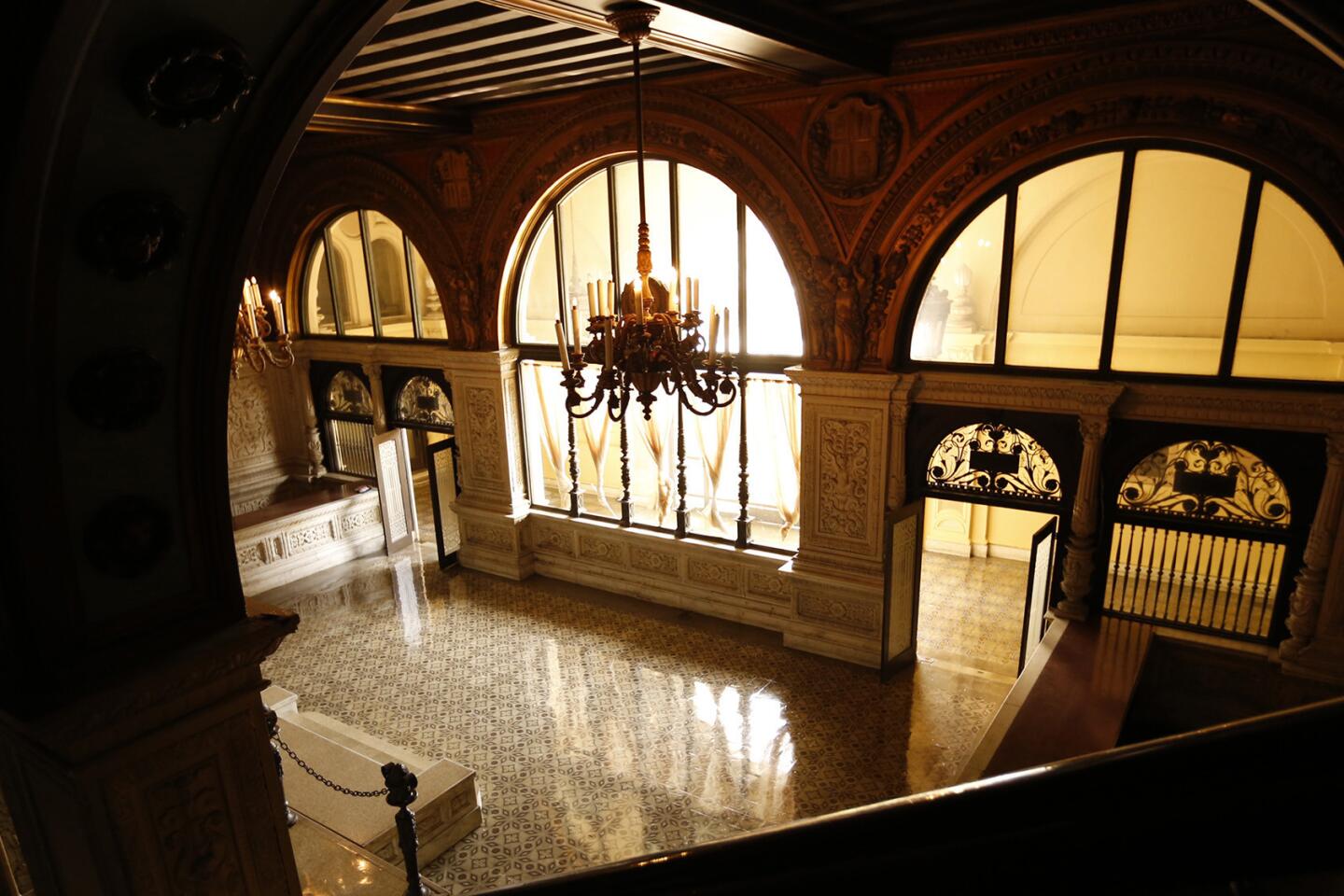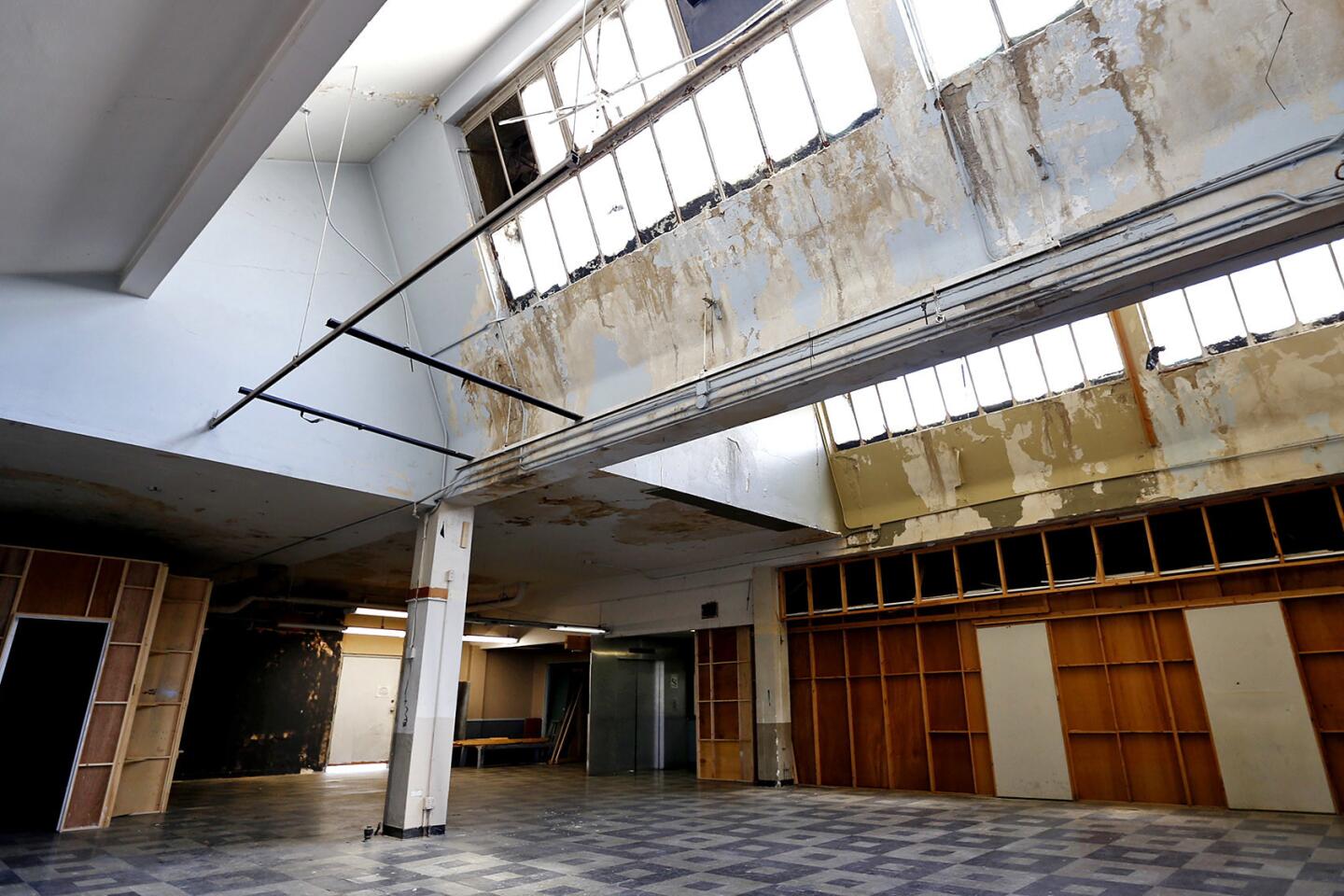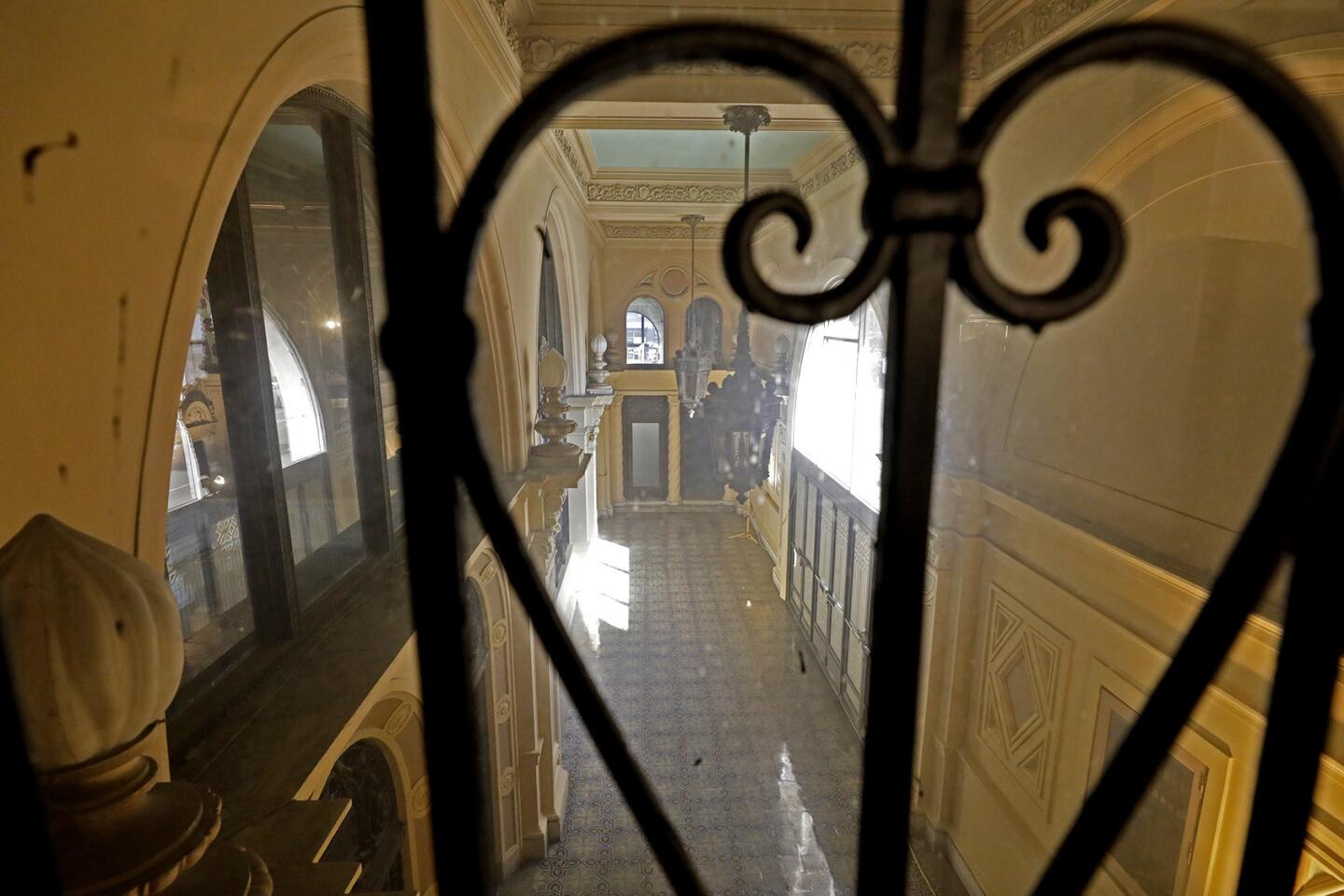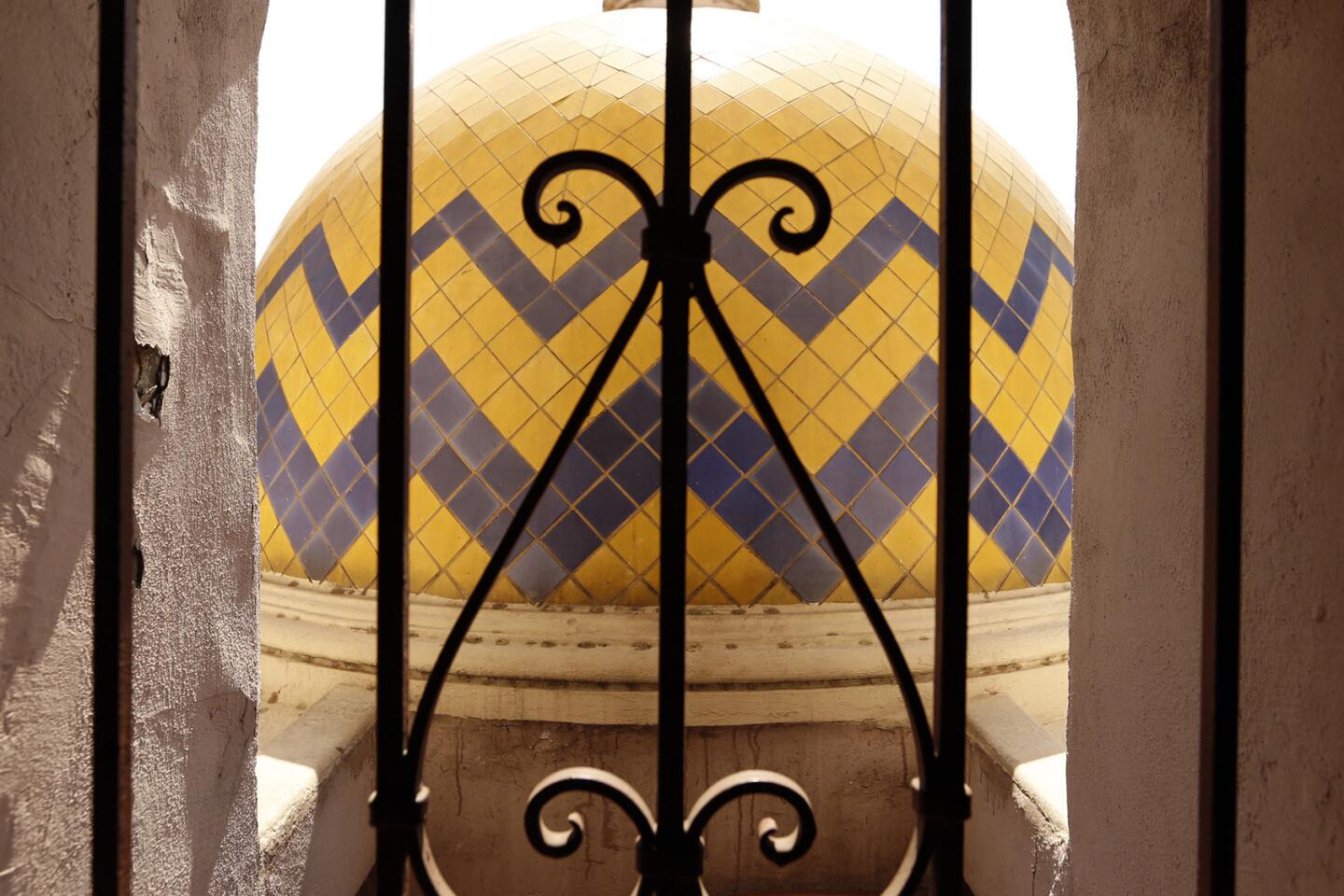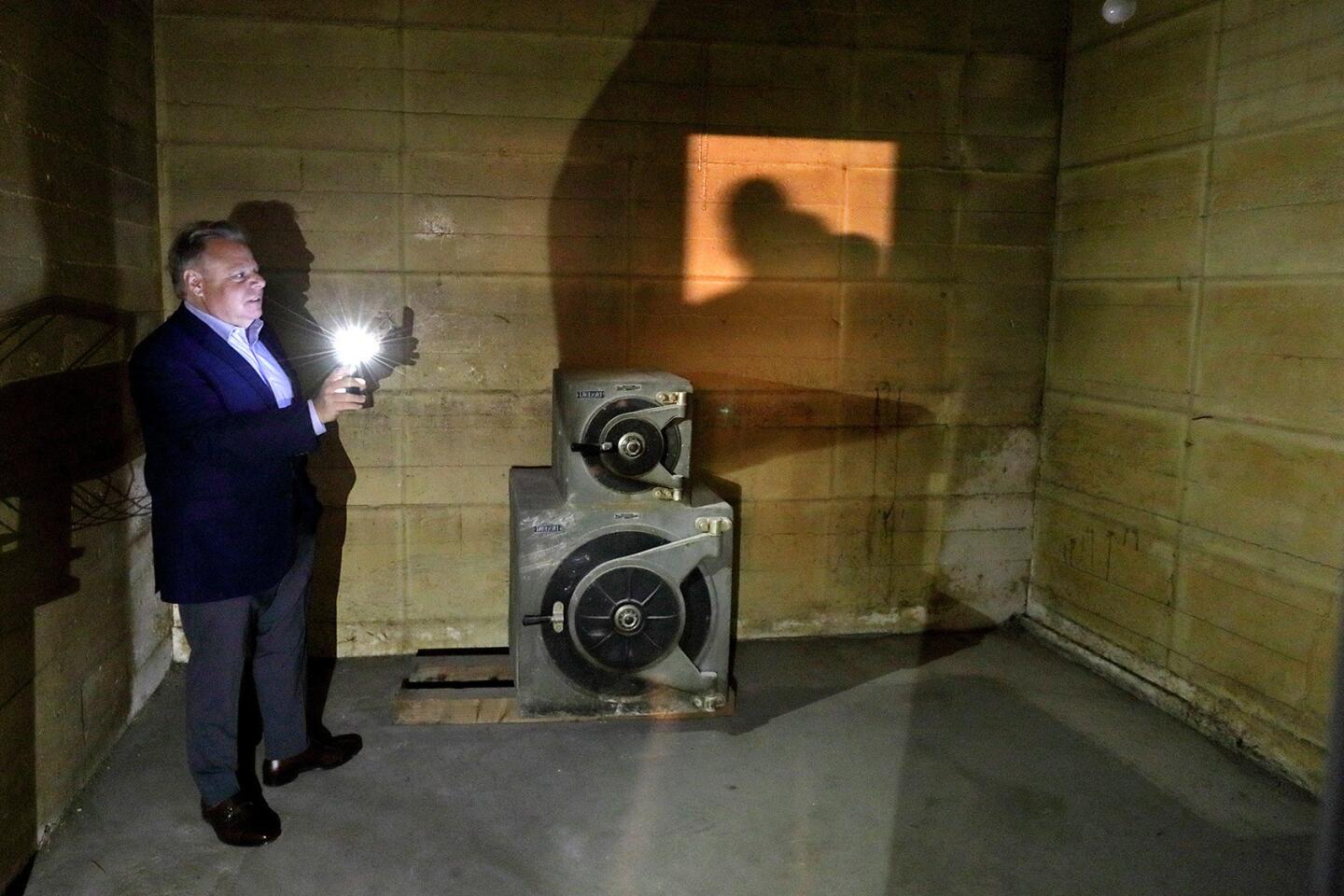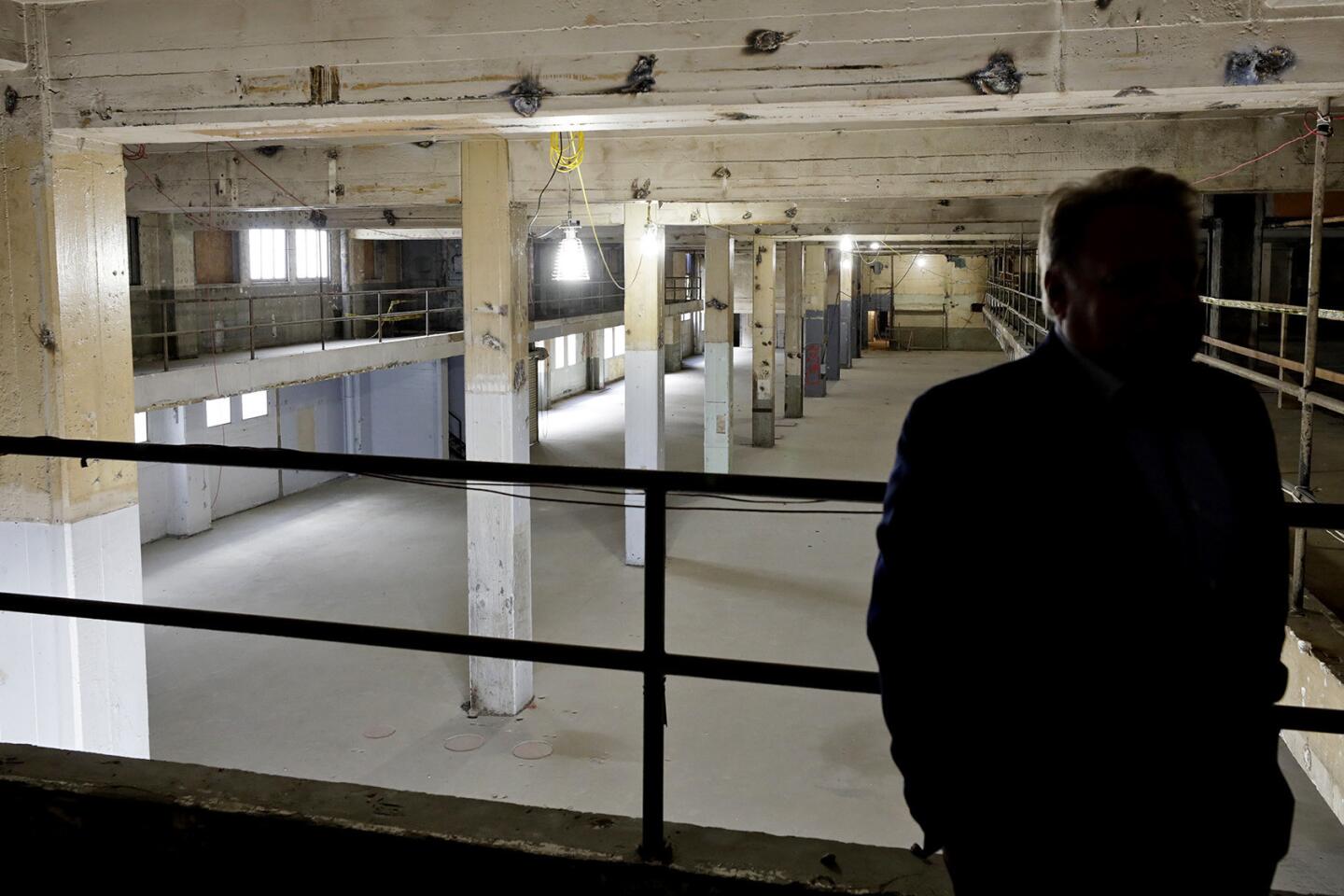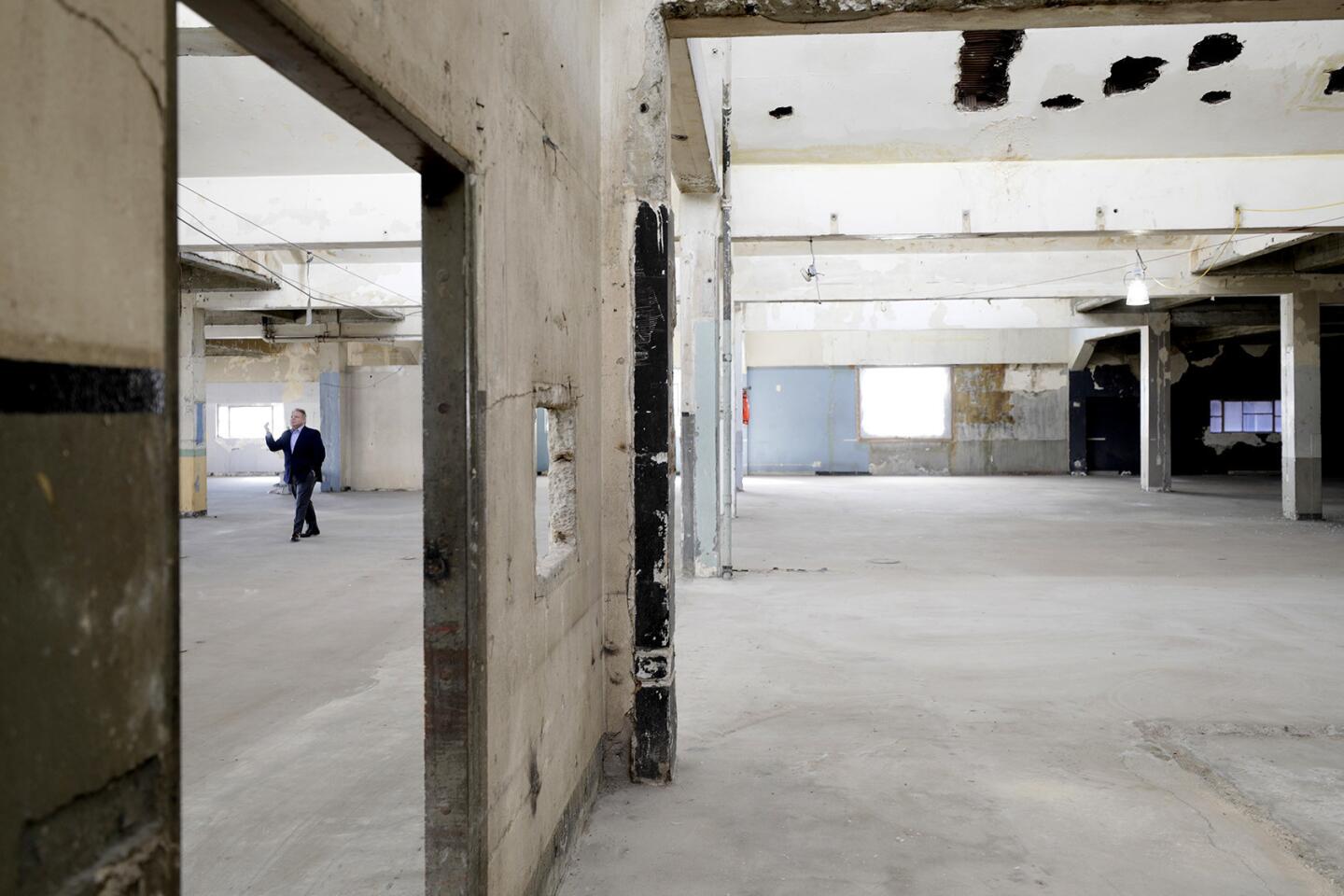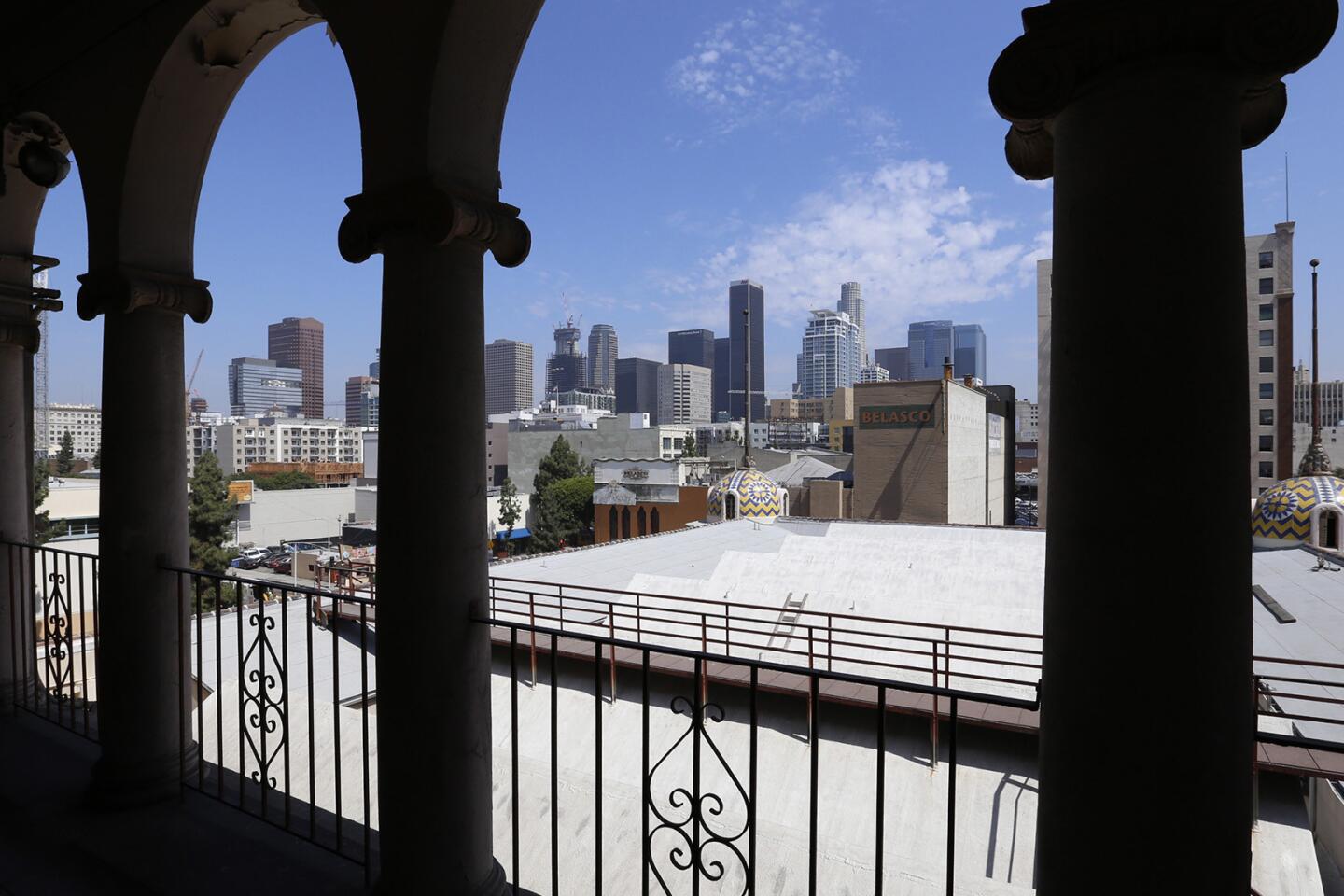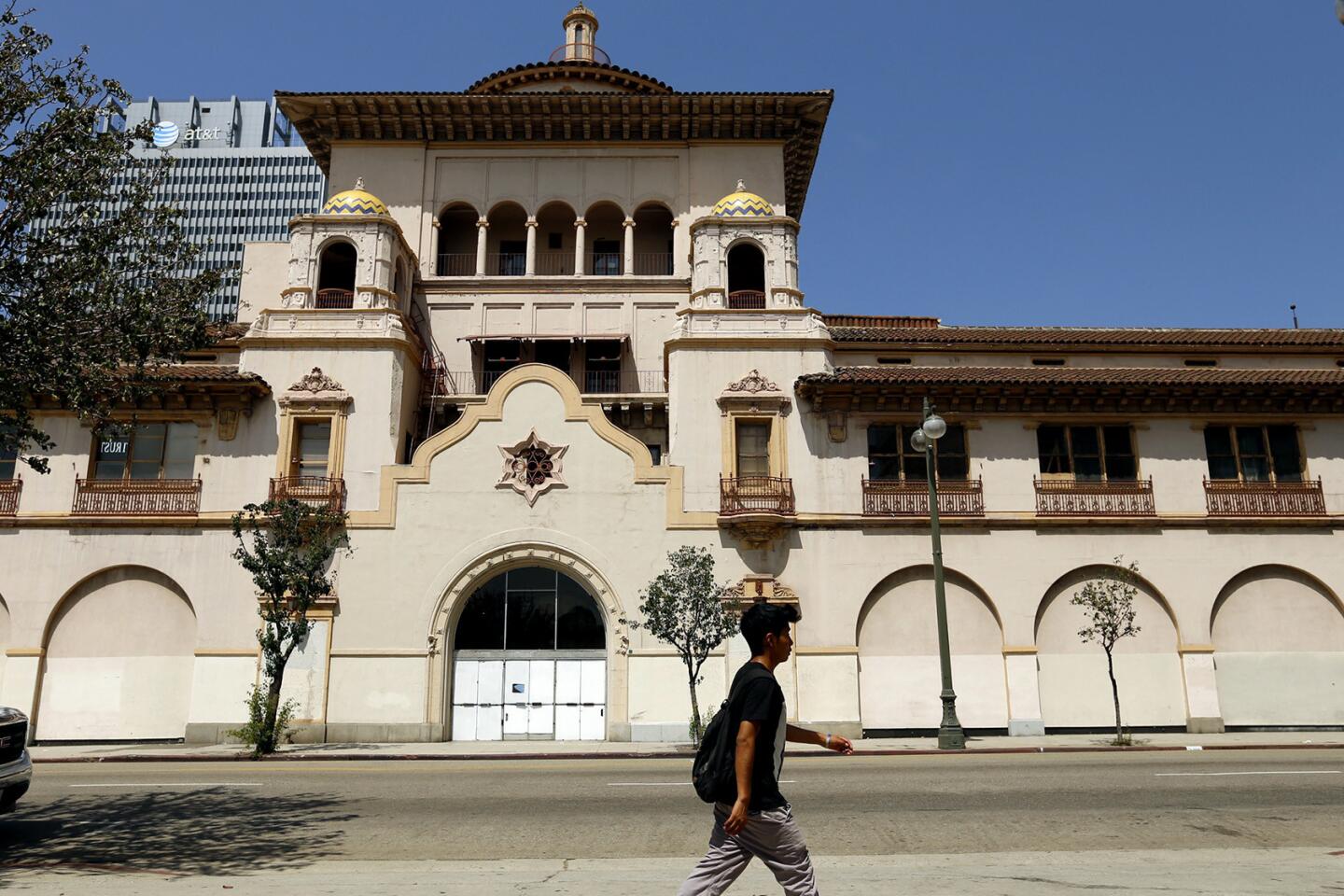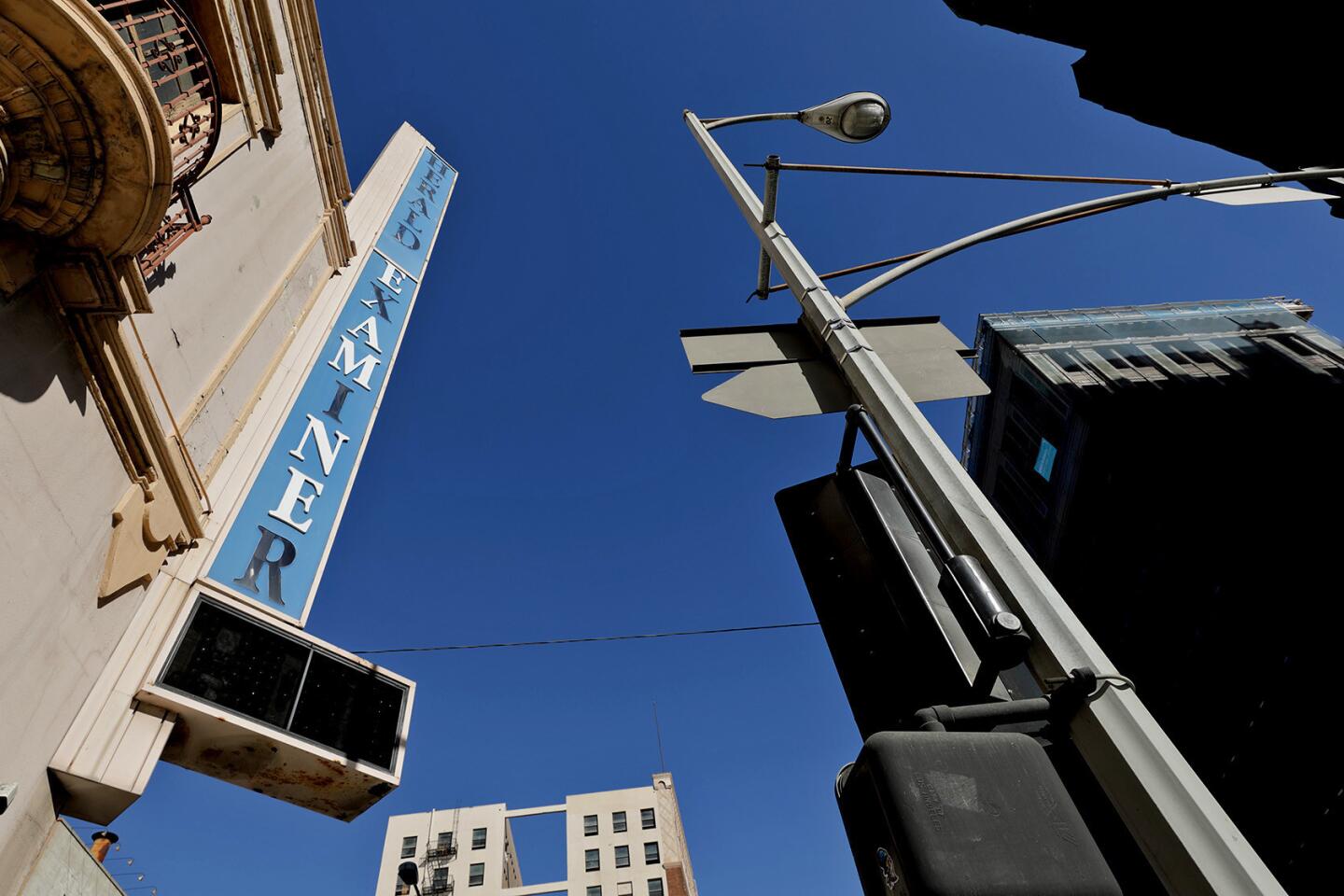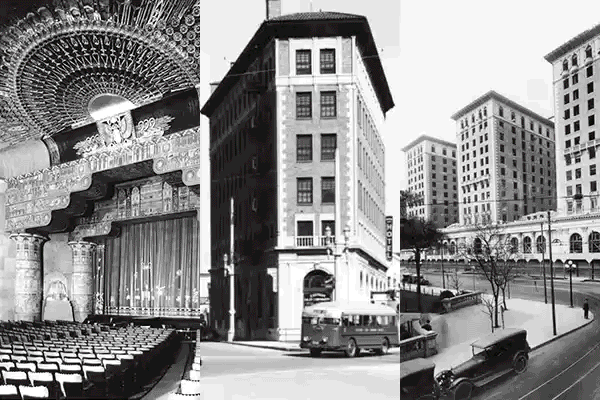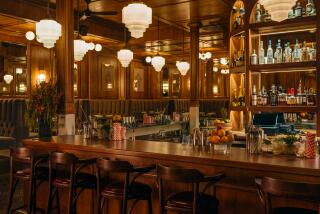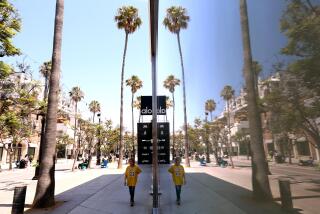République owners opening restaurant in downtown L.A.’s historic Herald Examiner building
The flurry of new development among some long-neglected blocks of downtown Los Angeles is pulling in thousands of new residents and overnight tourists — and some high-profile restaurateurs are next.
The founders of République, a lauded fine-dining establishment in Hancock Park, have agreed to open a bistro in the former Herald Examiner newspaper building, which is undergoing a renovation.
Built by newspaper mogul William Randolph Hearst in 1914, the landmark building on South Broadway has been shuttered since the newspaper went out of business in 1989. But now its once-blighted neighborhood is being transformed with apartments, hotels and offices.
New York real estate developer Georgetown Co. acquired control of the property in 2015, and announced plans to turn the building into leasable offices, with restaurants and shops on the ground floor. The renovated building, still partly owned by Hearst Corp., is set to open in two years.
The first tenants to commit are restaurateurs Walter and Margarita Manzke, who are known for serving modern French dishes at the pricey République. The restaurant opened four years ago in a 1920s building on La Brea Avenue originally commissioned by Charlie Chaplin as an investment. The handsome space was previously occupied by Campanile.
The Manzkes also operate more modest eateries serving Mexican street food at Petty Cash Taqueria on Beverly Boulevard and Filipino rice bowls at Sari Sari Store in Grand Central Market downtown.
The Manzkes declined to comment on what kind of restaurant they plan for the Herald Examiner building, but the extent of the $50-million renovation suggests that a higher-priced fine-dining establishment would fit there.
The Herald Examiner building was constructed after Hearst paid $1 million in 1913 for a parcel on the southern side of downtown following a subdivision of land formerly owned by railroad magnate Henry Huntington.
Hearst hired architect Julia Morgan to design the new home for his then-Examiner newspaper, which was at the end of its lease in another Broadway building. Morgan, who went on to design the publisher’s legendary Hearst Castle in San Simeon, conceived the newspaper building in a mix of Mission Revival and Spanish Colonial Revival styles.
Its showpiece is the lobby, intricately decorated with carved wood panels, hand-painted floor tiles, hammered iron grills, marble and gold. Carved cherubs over the central elevator facade hold shields emblazoned with H, presumably for Hearst.
“The lobby is phenomenal. It’s Julia Morgan at her best,” said architect Rob Jernigan, co-managing partner at Gensler, the architecture firm hired for the renovation.
The building will contain multiple restaurants, including one that may occupy the soaring, ornate lobby. But one of the priorities is to reopen the tall, arched windows that once faced Broadway but were boarded up during a nearly 10-year labor dispute that started in 1967. (The action was taken after bricks were hurled through the newspaper’s windows.)
When the renovation is complete, the Manzkes’ restaurant and one or two other cafes will extend through the arched openings onto Broadway. “The idea is to activate the street,” said Georgetown Vice President Michael Fischer.
Improvements to the building will begin in earnest next year but the interior has been stripped of old “improvements” such as dropped ceilings and walls.
Skylights that Morgan designed to flood the third floor with sunlight will be restored, Fischer said. The building was a popular filming site for decades, and sets such as a faux police station have been removed.
Among the surprises discovered in the demolition was a two-room walk-in vault on the first floor. Inside it are two locked Diebold safes to which no one knows the combinations.
The Manzkes’ establishment would be far from the first restaurant opened in a historic office or industrial building in recent years amid the renaissance of downtown Los Angeles outside the modern financial center. Among the upscale restaurants in renovated buildings are Spring, Bestia, Factory Kitchen and Rossoblu.
The downtown restaurant boom has been so pronounced, in fact, that a lot of restaurateurs “are hitting the pause button” on locating there, said real estate broker Matthew Fainchtein of Cushman & Wakefield, who represented the Manzkes.
In the roughly two years it will take to get the restaurant open, downtown should have many more residents and visitors, he said, which encouraged the Manzkes to sign a lease.
“With the timing and their love for architecturally interesting buildings, it just seemed like a perfect fit,” Fainchtein said.
Initial plans for renovating the Herald Examiner building called for converting it for residential use, but now it is surrounded with thousands of new apartments including a complex built on former Herald Examiner property directly behind the structure.
Two old brick-clad office buildings nearby are being turned into hip boutique hotels, the Proper and the Hoxton. New development is expected on blighted lots across Broadway from the Herald Examiner.
Just north on Broadway, the Ace Hotel and theater in a former 1920s office tower has become a thriving recreation destination since it opened in 2014.
“Every block, every parcel is in play” in the immediate neighborhood, said real estate broker Carl Muhlstein of JLL, who is looking for tenants to fill the 85,000 square feet of office space in the former newspaper building.
The development marks a revival of a part of downtown on the edge of South Park, the Fashion District and the Historic Core that has been economically depressed for half a century.
Its recovery promises to bring some glory back to one of the former jewels of the Hearst empire, Jernigan said.
“It’s one of the coolest buildings in our city,” the architect said, “and nobody’s ever seen it.”
Twitter: @rogervincent
More to Read
Inside the business of entertainment
The Wide Shot brings you news, analysis and insights on everything from streaming wars to production — and what it all means for the future.
You may occasionally receive promotional content from the Los Angeles Times.
